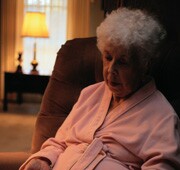 |
 |
 |
||
    |
||||
|
||||

Daily Naps May Raise Older Women's Death Risk
Addressing where the drowsiness comes from may be the solution, researchers say|
|
HealthDay
By Kevin McKeever
Thursday, April 2, 2009
 THURSDAY, April 2 (HealthDay News) -- A daily nap may boost an elderly woman's risk of dying, a new study suggests.
THURSDAY, April 2 (HealthDay News) -- A daily nap may boost an elderly woman's risk of dying, a new study suggests.
In contradiction of numerous past studies that have found that napping may have health benefits, researchers from the California Pacific Medical Center Research Institute found that elderly white women who took a daily siesta were 44 percent more likely to die from any cause, 58 percent more prone to dying from heart problems, and nearly 60 percent more likely to die from non-cardiovascular or non-cancer causes.
The results -- based on studies done over seven years on more than 8,000 white women aged 69 or older -- held true even if the women were relatively healthy, the researchers said. However, a little napping seemed to be fine -- participants who napped less than three hours a week showed no increased chance of death, the team said.
The study, published online in the Journal of the American Geriatrics Society, also found that these elderly women had a greater mortality risk if they clocked between nine and 10 hours of sleep each day compared to those who slept between eight and nine hours.
Still, the researchers said people shouldn't link napping to poor health or recommend that seniors skip napping. They noted that underlying sleep disorders or other medical conditions could be leading to daytime drowsiness.
"Since excessive sleep suggests that night time sleep is disrupted, interventions to treat sleep disorders and improve sleep quality in older women may reduce mortality risk," co-author Katie L. Stone, a scientist at the medical center, said in a news release issued by journal's publisher.
HealthDay
Copyright (c) 2009 ScoutNews, LLC. All rights reserved.
Related News:
More News on this Date
Related MedlinePlus Pages:
| Home | Health Topics | Drugs & Supplements | Encyclopedia | Dictionary | News | Directories | Other Resources | |
| Disclaimers | Copyright | Privacy | Accessibility | Quality Guidelines U.S. National Library of Medicine, 8600 Rockville Pike, Bethesda, MD 20894 National Institutes of Health | Department of Health & Human Services |
Date last updated: 03 April 2009 |
